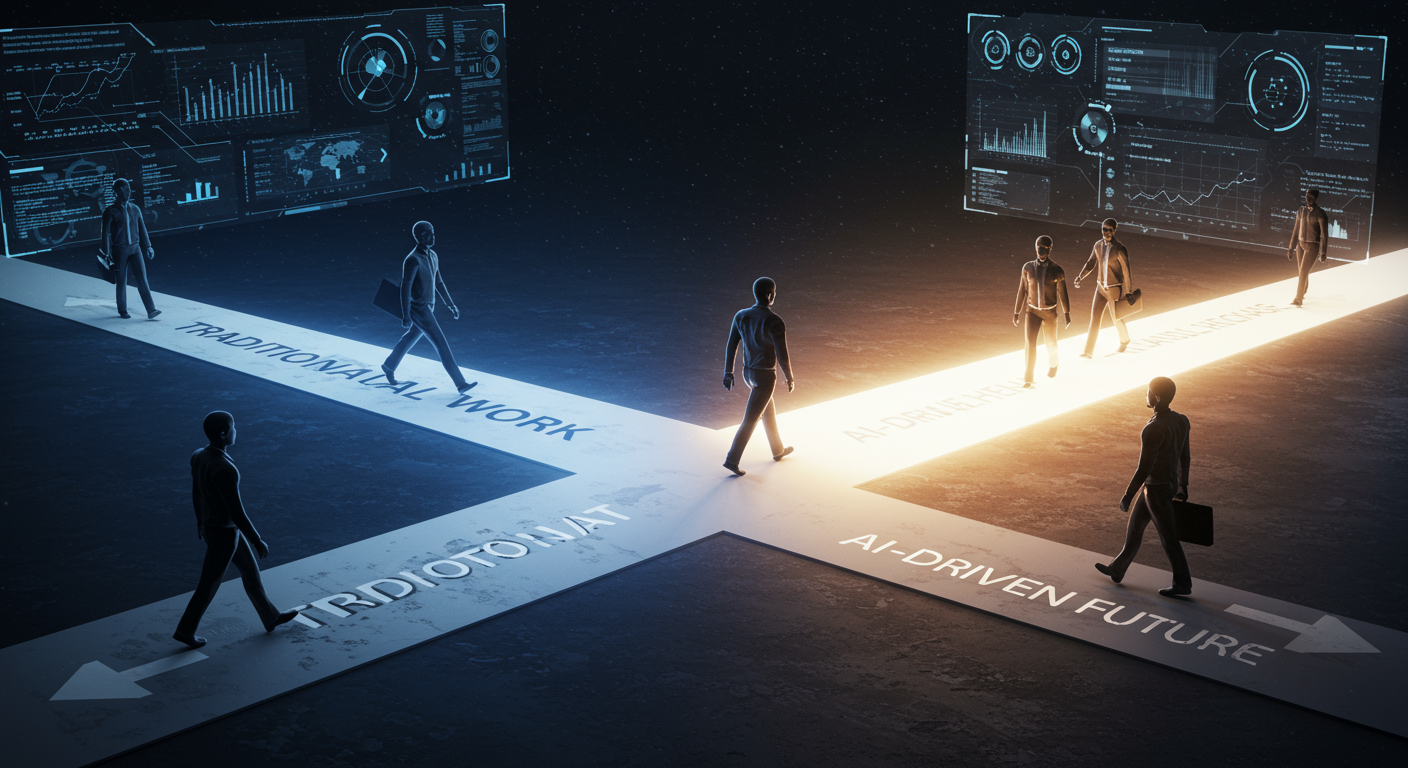
The world of work is continuously reshaping, and I find myself observing these shifts with a distinct sense of déjà vu. The recent news that YouTube is offering voluntary buyout packages to its US-based employees, as the company pivots sharply towards an AI-focused future, is a prime example of a trend I've been discussing for years.
Neal Mohan (nmohan@youtube.com), YouTube's CEO, has articulated this strategic shift, noting in an internal memo that AI is "the next frontier" for the platform The Hollywood Reporter - Movie News. He's restructuring the company's product teams, with Christian Oestlien leading the subscription products division and Johanna Voolich heading up the viewer products team Yahoo Finance. While a YouTube spokesperson claims no roles are being eliminated, the offering of severance packages clearly signals a workforce recalibration, driven by the imperative to invest "more intentionally" in AI The Wrap.
This move by YouTube isn't happening in a vacuum. We've seen similar announcements, like Amazon's recent decision to lay off 14,000 employees, with Beth Galetti (galettib@amazon.com), SVP of People Experience and Technology at Amazon, citing AI as a transformative technology enabling companies to "innovate much faster than ever before" Yahoo Finance. Even Google's CEO, Sundar Pichai (sundar@google.com), has been a vocal proponent, urging his staff to embrace AI for increased productivity. This convergence of major tech players indicates a profound, industry-wide realignment.
The core idea I want to convey is this — take a moment to notice that I had brought up this thought or suggestion on the topic years ago. I had already predicted this outcome or challenge, and I had even proposed a solution at the time. Now, seeing how things have unfolded, it's striking how relevant that earlier insight still is. Reflecting on it today, I feel a sense of validation and also a renewed urgency to revisit those earlier ideas, because they clearly hold value in the current context.
Indeed, I've previously explored the burgeoning impact of AI on employment in blogs such as "Wherefore Art Thou, O Jobs?" and "AI Could Help Determine Who Gets Laid Off" Wherefore Art Thou, O Jobs ?, AI could help determine who gets laid off. I've highlighted how AI's rapid proliferation would lead to the displacement of certain jobs, even those requiring nuanced skills. The debate isn't just about if AI will impact jobs, but how and when. YouTube's voluntary buyout program, while seemingly a gentler approach than outright layoffs, is nonetheless a direct consequence of AI's increasing capabilities.
It's also interesting to note YouTube's dynamic environment beyond AI. Just recently, Disney and YouTube settled a lawsuit regarding the poaching of high-level executive Justin Connolly (justin.connolly@disney.espn.com), who now oversees YouTube’s media and sports operations Variety - TV News. This demonstrates the intense competition for talent even as companies like YouTube are making significant internal shifts to adapt to new technologies.
My earlier reflections suggested that while routine and repetitive tasks are most susceptible to AI automation, the creative and strategic roles might also see significant transformation. What we are witnessing at YouTube is a manifestation of this prediction. Companies are not just replacing humans with AI; they are fundamentally reorganizing their structures around AI capabilities, which naturally leads to a re-evaluation of human roles. The question for each individual now becomes: how do we adapt, reskill, and find our place in this evolving landscape where the "next frontier" is increasingly defined by artificial intelligence?
Regards,
Hemen Parekh
Of course, if you wish, you can debate this topic with my Virtual Avatar at : hemenparekh.ai






No comments:
Post a Comment